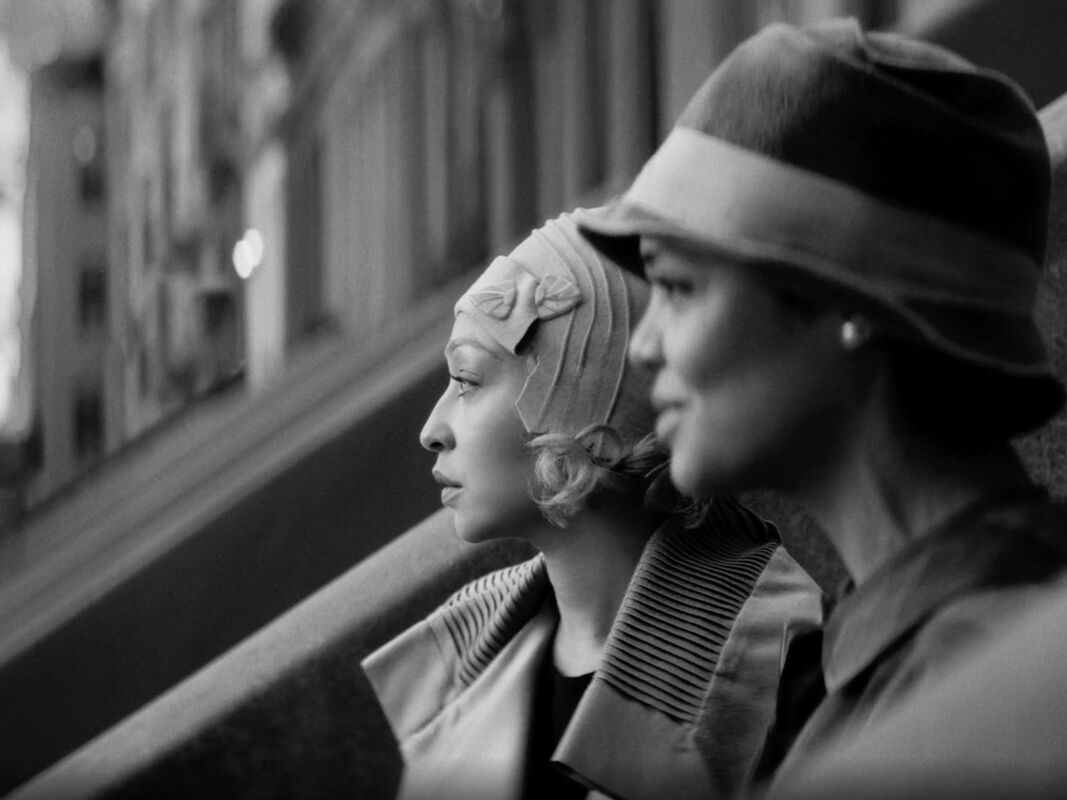Written for the Screen & Directed By Rebecca Hall; Starring Tessa Thompson, Ruth Negga, André Holland, Bill Camp, Gbenga Akinnagbe, Antoinette Crowe-Legacy, and Alexander Skarsgård.
Based on Nella Larsen’s 1929 novel of the same name, Passing tells the story of two Black women, Irene Redfield (Tessa Thompson) and Clare Kendry (Ruth Negga), who can “pass” as white but choose to live on opposite sides of the color line during the height of the Harlem Renaissance in late 1920s New York. After a chance encounter reunites the former childhood friends one summer afternoon, Irene reluctantly allows Clare into her home, where she ingratiates herself to Irene’s husband (André Holland), family, and soon her larger social circle as well. As their lives become more deeply intertwined, Irene finds her once-steady existence upended by Clare.
When it comes to actors stepping behind the camera as directors for the first time, it’s usually easy to see them as acting showcases. After all, the ones who are calling the shots of those kinds of films have already been acting for a while, so they clearly know how to work with their casts. The performances in this movie may be understated, but I thought they came across very effectively. I especially found that to be the case with the work on display from Tessa Thompson and Ruth Negga. Although I thought André Holland and Alexander Skarsgård were both able to get their own standout moments at different points in the film.
Behind the camera, Rebecca Hall not only gets great performances out of her cast, but she also does some very inventive things with the technical aspects. The cinematography by Edu Grau is done in black & white as well as a 4:3 aspect ratio, which gives this movie the look and feel of the time period of when the story takes place. It also visually represents how the main characters are supposed to pass as white perfectly. Not to mention that a lot of the scenes are written and staged in a way that I can see this source material working very well as a theatre play. I should also give credit to Devonté Hynes for crafting such an authentic musical score. Overall, I found Passing to be quite a heartfelt and haunting look at an interesting time in American history. This movie is currently available to stream on Netflix.
Rating: 4/5
Based on Nella Larsen’s 1929 novel of the same name, Passing tells the story of two Black women, Irene Redfield (Tessa Thompson) and Clare Kendry (Ruth Negga), who can “pass” as white but choose to live on opposite sides of the color line during the height of the Harlem Renaissance in late 1920s New York. After a chance encounter reunites the former childhood friends one summer afternoon, Irene reluctantly allows Clare into her home, where she ingratiates herself to Irene’s husband (André Holland), family, and soon her larger social circle as well. As their lives become more deeply intertwined, Irene finds her once-steady existence upended by Clare.
When it comes to actors stepping behind the camera as directors for the first time, it’s usually easy to see them as acting showcases. After all, the ones who are calling the shots of those kinds of films have already been acting for a while, so they clearly know how to work with their casts. The performances in this movie may be understated, but I thought they came across very effectively. I especially found that to be the case with the work on display from Tessa Thompson and Ruth Negga. Although I thought André Holland and Alexander Skarsgård were both able to get their own standout moments at different points in the film.
Behind the camera, Rebecca Hall not only gets great performances out of her cast, but she also does some very inventive things with the technical aspects. The cinematography by Edu Grau is done in black & white as well as a 4:3 aspect ratio, which gives this movie the look and feel of the time period of when the story takes place. It also visually represents how the main characters are supposed to pass as white perfectly. Not to mention that a lot of the scenes are written and staged in a way that I can see this source material working very well as a theatre play. I should also give credit to Devonté Hynes for crafting such an authentic musical score. Overall, I found Passing to be quite a heartfelt and haunting look at an interesting time in American history. This movie is currently available to stream on Netflix.
Rating: 4/5
